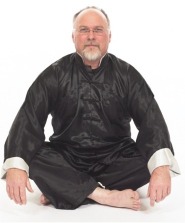The beginners and senior classes on Sunday Dec 15 will be cancelled.
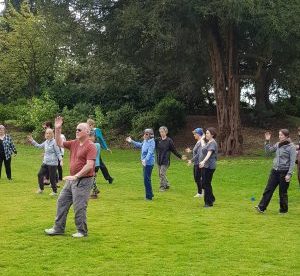
It is my hope that the following will help “first timers” better understand and enjoy their early Tai Chi classes since I frequently come across beginners who attend Tai Chi sessions with absolutely no knowledge or understanding of what it is or how classes work – and it seems that this sometimes can lead to an unnecessary disappointment, and that the problem is really about expectations brought into the class – perhaps this piece will help align those expectations with the reality of a class without scaring anybody off – there is no reason to be put off, Tai Chi really is a gentle, caring activity – but it is important to understand that Tai Chi is “what it is” and not what you expect it to be coming from the outside. One might reasonable expect that by going to a class one is going to learn about Tai Chi and indeed of course one will – but the subject is so large and the range of expectations/behaviours so great that it cannot all be encompassed in an introductory class – or possibly a lifetime.
Perhaps the best single piece of advice I can offer is to “learn to look after yourself” in all the possible ways that implies and learn to work within your comfort zone – but that is a lesson in itself.
Belsey Bridge residential workshop
11/09/2019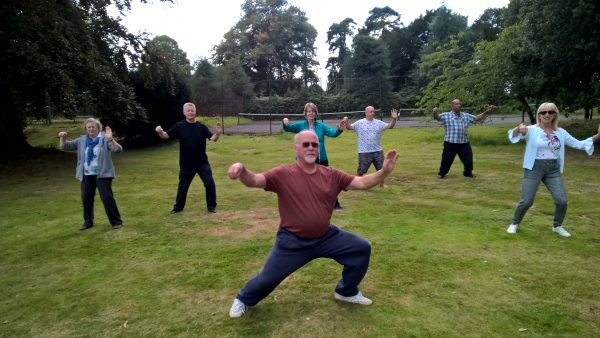
We have been going to Belsey Bridge Conference Centre for many years and always have a good time – this year was exceptional, I guess due to the lovely mix of people who attended.
The program was based on “how to do” and becoming aware of internal feelings. This involved about 18 hours of actual training with a good measure of discussion on top. Given that this was the first Tai Chi workshop for most people the level of enthusiasm and staying power was notable – with even those who had previously chosen to do only the introductory section now deciding to learn the whole Laojia form.
The food was great ” like the best ever school meals!” and the company fun. 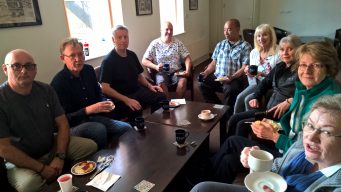
Everyone agreed they had learned a lot – perhaps more than they imagined possible – and now appreciated a great deal more than before – on a personal note I learned a lot as well.
Training was focused on Laojia form repetitions and corrections plus partner work leading to single push hands – again a first for many but enjoyed by all.
An experience we hope to repeat next year.
New material on Tai Chi
04/09/2019I have recently been adding to older articles and completing new ones that have been in the pipeline for some time. There are eleven pieces about Tai Chi in general:
The Dynamics of a Tai Chi Class – what Beginners can expect – A question that I am often asked is: “What will your Tai Chi class be like?” – this is a very important question if you are thinking about joining a Tai Chi class for the first time, because the group may be a little different to your expectations. Let me set your mind at rest, though, and give you some ideas to help make your Tai Chi a really enjoyable experience.
Attending a Martial Arts (Tai Chi) class for beginners – further thoughts – Attending a martial arts class may well be very different to other activities you have undertaken and it should be remembered that Tai Chi is a martial art – and I believe it is extremely important that this link is maintained. This is part of their paradox which I have written about elsewhere. So the following are a few personal thoughts drawn from 45 years’ experience, which may forewarn and help a beginner to navigate and benefit from a class.
Some Tai Chi Notes – Various notes on Tai Chi, including real world philosophy, practice and study of Tai Chi, and neural development.
Take one for the team – invest in loss – Here’s an idea – think of yourself as a committee – and your body and your mind and your spirit as sub-committees – then work on strengthening the weakest part and developing good connectivity.
Guidelines for practising Tai Chi and Tai Chi Exercises – important points for beginners – some ideas for beginners coming to Tai Chi classes for the first time – or just getting into it. They may also be particularly useful where health and mobility are significant issues
The History of Tai Chi – The story of Tai Chi from its beginnings in the 1600s to the present day
A Western View of Chi – some thoughts on what sense we might make of “Chi” from a western science perspective – an effort to translate between Chinese and English cultures. More recent thoughts on Chi also at the end of Tai Chi – important behaviours
Beginners Guide to the Development of Internal Feeling in Tai Chi – thoughts on internal feeling/awareness which is so important to progress in Tai Chi
Question and answer session – extracts from a conversation with a friend covering ideas about martial arts in general and Tai Chi in particular
Chi and Body mapping and muscle power – further thoughts on a western interpretation of Chi and how it is of value in Tai Chi.
My trip to the home of Tai Chi 2013 – Ian went on a 2 week trip to China – to visit the Chen village of Chenjiagou in Henan province and to train with Master Chen Xiaowang for a week. The group went via Beijing and Zhengzhou – taking in tourist time in Beijing, at the Shaolin Temple and the Buddhist Longmen Caves on the Li river.
An interesting piece this week in New Scientist – they do not recommend Tai Chi but practice does fit the sort of activity they suggest and I have a number of students who tell me their back pain has disappeared since doing Tai Chi. They do not offer a recipe for a quick cure but the piece is certainly well worth a read.
The biggest problem in teaching Tai Chi
01/09/2019I was reflecting today on my (arguably variable) abilities as a teacher of Tai Chi – wondering how to better “get it across” to my classes of likewise variable ability, age and education – and was struck by the observation that actually the biggest problem I have is with students who think they know it all. They may exhibit this immediately or it may take a year or two.
I recall advice from one of my teachers in Hong Kong to “be humble” and finding that being humble simply means to have a realistic understanding of ones ability. Such otherwise closed mindedness is a sure barrier to learning on a personal level but worse it can poison a whole class if only by taking up excessive resources and creating distraction – if you are bored or think that the teacher doesn’t know what they are doing then please leave and seek another teacher – or preferably keep quiet, then stay and seek to understand by redoubling your own efforts, rather than blaming someone else.
Residential program
01/09/2019Our residential program this year will take as it’s theme ” Don’t just do the exercise – feel and think about the movement in your body.”
The program has the following points for students to consider:
History and fore runners
Shaolin, Bodidhama, Buddhism, Yoga, Chi Kung, Chin na, traditional Chinese medicine, theories of 5 elements, theory of Chi and meridians, Taoism, Power vs Yielding,
Sensing the feeling of movement
The place of weapons
Identifying: Relax, Move from the centre, All moves at once,
Mapping the space – partner work
Links to other approaches – Chi kung, Yoga, Pilates, Karate, various Kung Fu eg Shaolin, meditation, Taoism, Yiquan,
Very slow practice, fast and loose practice, standing, creating your own exercises,
Large movement, small movement,
Making and feeling connection
The place of meditation
Integration
Theory of martial arts – what are we seeking to achieve?
Structure, balance, fluidity,
The place of fighting, studying conflict, balancing forces, Tai chi in daily life, the path of martial arts – combative, healing, wisdom/understanding.
To those who are coming – I look forward to seeing you there – if you are not joining us then maybe the notes will give you something useful to think about.
All the best in your practice.
Master Chen Yingjun in the UK
31/07/2019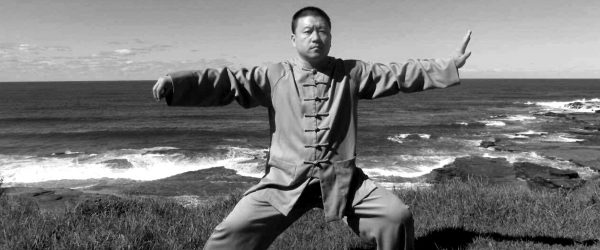
Another wonderful master from the Chen family will also visit in November – someone I have trained with whenever I could and very well worth working with is Master Chen Yingjun – son of Grandmaster Chen Xaiowang.
Chen Yingjun has visited the UK regularly for many years and has workshops at a number of venues including Oxford and Reading.
Details from www.chenyingjun.co.uk
Master Chen Bing in London
31/07/2019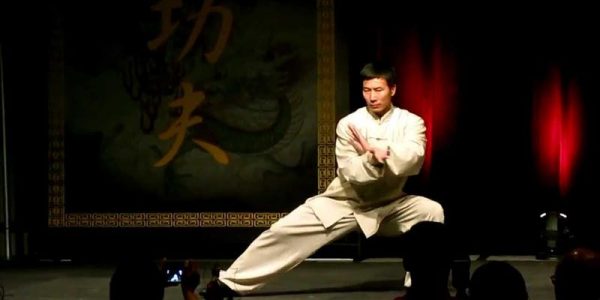
I hear that Master Chen Bing will visit the UK in August – I have met and trained with Chen Bing for only a couple of hours but that is enough for me to recommend anyone seriously interested in Tai Chi to attend his demonstrations/workshops.
Tai Ji Circle will host him on Sat, 24 August 2019 11:00 – 13:00 BST see here for tickets
I understand that he may also visit other venues so it is worth looking out for information.
Tai Chi – the Magic of Movement Workshop
22/07/2019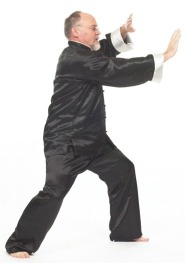 I will be running a workshop at The Letchworth Centre for Healthy Living on Sunday 28 July, 9.30 for 10.00-13.00.
I will be running a workshop at The Letchworth Centre for Healthy Living on Sunday 28 July, 9.30 for 10.00-13.00.
Tai Chi practitioners often describe the feeling of moving their bodies as magical, and the experience of long term Tai Chi practice can certainly be described as developmental. My workshop will introduce beginners to the simple ideas underlying this popular but little understood art. Longer term practitioners can expect to be helped on their path and perhaps achieve further insights on their own developmental journey.
Cost: £35 includes refreshments
Book your place
or contact Pat James at the Letchworth Centre, 01462 678804, [email protected]

